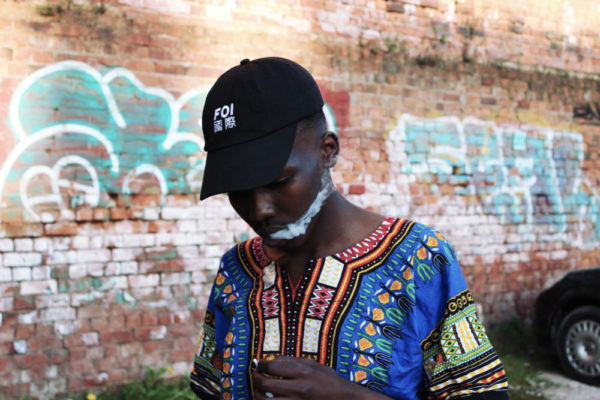Features
Adefolake Adekola: The Second Hand Effect of Smoking on Non-Smokers
 I am not here for the smokers because I believe they are completely aware of the side effects being that it is boldly written on the cigarette pack “Smokers are liable to die young”. I am here for Titi that works in a club and inhales packets of cigarettes daily or Uche who hangs around his friends that smoke but stays so they don’t tag him as boring. I am here for Ahmed that shares a flat with a chain-smoker. They all have justifiable reasons for being around smoke but are more vulnerable than the actual smokers. We already know smoking is bad for our health and the environment but it is also a major problem for those that do not smoke but do nothing to prevent inhalation.
I am not here for the smokers because I believe they are completely aware of the side effects being that it is boldly written on the cigarette pack “Smokers are liable to die young”. I am here for Titi that works in a club and inhales packets of cigarettes daily or Uche who hangs around his friends that smoke but stays so they don’t tag him as boring. I am here for Ahmed that shares a flat with a chain-smoker. They all have justifiable reasons for being around smoke but are more vulnerable than the actual smokers. We already know smoking is bad for our health and the environment but it is also a major problem for those that do not smoke but do nothing to prevent inhalation.
Before I delve into the facts about second hand smoking, let me define it. Second hand smoking(also known as passive smoking) as defined by American Cancer Society (2015) is the inhalation of smoke exhaled by smokers from cigarettes, pipes, cigars or tobacco burning on a hookah (shisha).
Center for Disease Control and Prevention makes us understand that tobacco smoke contains more than 7000 chemicals, with most of them toxic such as Vinyl Chloride, Benzene, Formaldehyde, mostly carcinogenic compounds.
Here are some facts about second hand smoking
1. Secondhand smoke is responsible for hundreds of thousands of new causes of pneumonia and bronchitis in babies 18 months and younger every year.
2. Pregnant women subject to second-hand smoke are vulnerable to miscarriages, still birth and low weight in babies.
3. Short term exposure can increase risk of heart attacks.
The World Health Organization estimates that at least 890,000 premature deaths per year are related to secondhand smoke worldwide. Others health effects are ear infections, birth defects and brain tumor.
An interesting fact is that there is third-hand smoke, which deals with surfaces an individual comes in contact with that may have nicotine such as clothing, furniture, walls, toys etc.
What can we do?
A. For parents, teach your kids to stay away when people are smoking.
B. Do not allow people smoke in your car, house or enclosed areas.
C. Enforce a strict no-smoking policy in public places, to protect non-smokers.
The only way we can fully protect non-smokers from secondhand smoke is to ban smoking from indoor places.
Photo Credit: © creativecommonsstockphotos



















